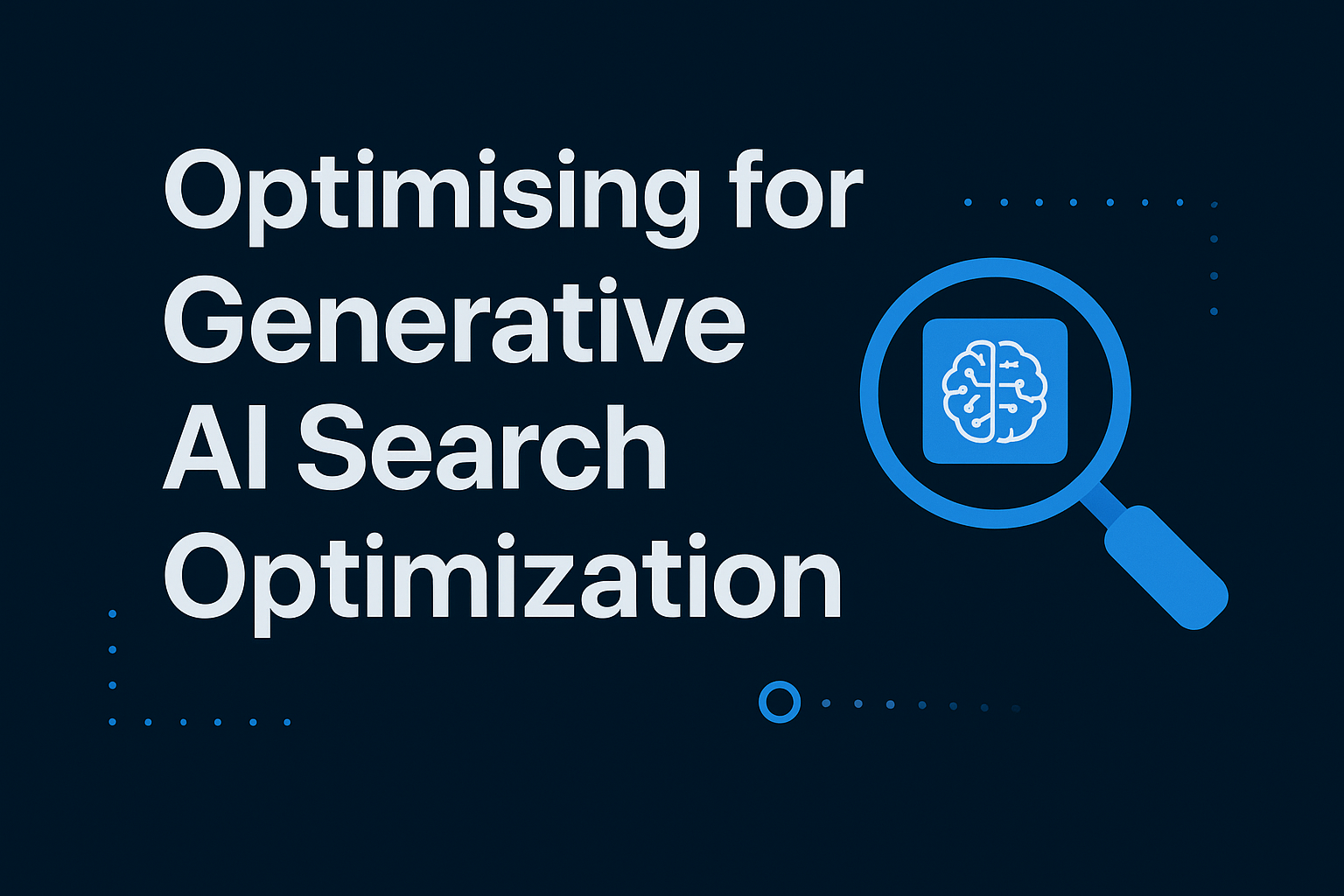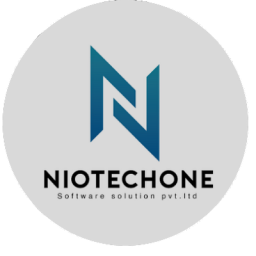
Introduction: The AI Search Revolution
The digital marketing landscape is evolving rapidly. Traditional search engine optimization (SEO) focused on keywords and backlinks, but today, Generative AI Search is changing how content is discovered. Platforms like ChatGPT, Bing AI, and Google’s AI-powered search are now delivering direct answers, summaries, and context-aware results, often bypassing traditional search result pages (SERPs).
This shift has major implications for bloggers, content creators, and marketers. To remain competitive, it’s crucial to adopt Generative AI Search Optimization (GEO) — a strategy that ensures your content is discoverable and relevant in AI-driven search environments.
What is Generative AI Search Optimization?
Generative AI Search Optimization focuses on tailoring content for AI search engines powered by large language models (LLMs). Unlike traditional SEO that emphasizes exact keywords, GEO prioritizes:
Semantic relevance: Content must match the context and intent behind queries.
Structured data: Helps AI understand content hierarchy and meaning.
Concise, high-quality answers: AI favors content that directly addresses questions.
For example, if a user asks, “How to create a Bootstrap 5 login system?”, an AI-powered search engine might summarize multiple tutorials in a single response. Blogs optimized for GEO are more likely to appear as that answer.
How AI Search Changes Content Discovery
With AI-driven search, users increasingly receive instant answers, rather than a list of links. This change impacts:
Traffic patterns: Blogs may receive fewer clicks but higher-quality engagement if the AI references your content directly.
Search visibility: Content that aligns with AI’s understanding of the topic ranks higher.
User intent fulfillment: AI rewards content that answers questions comprehensively and clearly.
Example: A query like “Best practices for email marketing” may produce a single summary drawing from multiple blogs. If your blog is structured, concise, and uses schema, AI is more likely to cite it.
Key Strategies for GEO Success
1. Focus on Semantic and Contextual Relevance
AI searches prioritize content that understands user intent. To optimize:
Use natural language instead of over-stuffing keywords.
Target long-tail queries and question-based phrases.
Include synonyms and related terms for broader coverage.
Example: Instead of just “SEO tips,” use “SEO tips for beginners to improve blog visibility in AI search.”
2. Implement Structured Data and Schema Markup
Structured data helps AI parse and understand your content quickly.
Use FAQ schema to answer questions directly.
HowTo schema guides AI in understanding step-by-step processes.
Article schema signals authoritative and high-quality content.
Proper schema increases the likelihood your content is surfaced in AI responses.
3. Create High-Quality, Unique Content
AI values original content that demonstrates depth and expertise.
Write long-form guides, tutorials, and case studies.
Include examples, visuals, and step-by-step instructions.
Avoid duplicate or low-value content.
Tip: Enterprise blogs, software tutorials, and marketing guides perform exceptionally well when optimized for AI search.
4. Answer User Intent Clearly
AI looks for content that directly answers user questions.
Structure answers in bullet points, numbered lists, or tables.
Lead with the answer before providing detailed context.
Use headings and subheadings to improve clarity.
Example: For a query on “Bootstrap 5 login form,” start with a concise code snippet, then explain the steps.
5. Optimize for Voice and Chat Interfaces
Many AI searches are conversational:
Use a friendly, natural tone suitable for voice queries.
Include questions and answers in your content.
Make content scannable for chatbots to extract responses efficiently.
Tools and Techniques for GEO
Some tools can help optimize content for generative AI search:
AI content analyzers: Evaluate semantic relevance.
Keyword research tools: Identify AI-friendly long-tail phrases.
Schema generators: Add structured data easily.
Content audit tools: Update old blogs for AI optimization.
By leveraging these tools, marketers can improve their content’s chances of being cited in AI answers.
Challenges in Generative AI Optimization
While GEO offers new opportunities, there are challenges:
AI biases: Search engines may favor certain content types.
Hallucinations: AI may misinterpret content if it’s poorly structured.
Continuous updates: Algorithms evolve rapidly, requiring regular content refreshes.
Overcoming these challenges requires high-quality, verified, and structured content, along with continuous monitoring.
Future of Content Marketing in the AI Search Era
The future will shift from keyword-based SEO to intent-driven optimization. Blogs must:
Anticipate user questions and provide AI-friendly answers.
Combine enterprise mobility software solutions with AI insights for content strategy.
Invest in structured, high-quality, and contextually relevant content.
Software development companies can leverage GEO to boost visibility of blogs, tutorials, and guides, ensuring their expertise is recognized by AI-driven search engines.
Conclusion
Generative AI Search Optimization is rapidly transforming how content is discovered. By focusing on semantic relevance, structured data, user intent, and AI-friendly formatting, bloggers and marketers can stay ahead in the evolving search landscape.
Actionable Tip: Audit your existing blogs, implement structured schema, and optimize for conversational AI queries to maintain visibility and authority in AI-driven search.
FAQs
Q1: What is Generative AI Search Optimization?
A: It’s the process of optimizing content for AI-driven search engines to improve visibility in direct answers and chat responses.
Q2: How is GEO different from traditional SEO?
A: GEO focuses on user intent, semantic relevance, and structured content, rather than just keywords.
Q3: Which industries benefit from GEO?
A: Blogs, software development companies, marketing agencies, and enterprise content providers benefit most.
Q4: Can old content be optimized for AI search?
A: Yes, updating content with structured data, FAQs, and context-aware phrasing improves AI visibility.
Q5: What tools help with GEO?
A: AI content analyzers, schema generators, semantic keyword tools, and content audit platforms.


Write a comment ...